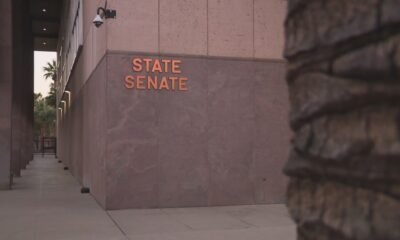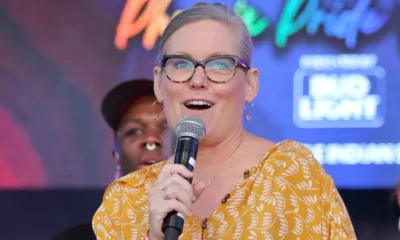charter school
How Arizona’s ‘Choice’ System Fails Students with Disabilities

Arizona’s educational landscape faces significant scrutiny as lawmakers champion a school choice model designed to empower parents. The open enrollment system and the Empowerment Scholarship Account (ESA) program are often celebrated as means to enhance educational freedom. However, families with children with disabilities encounter substantial barriers that undermine these promises.
The open enrollment law enables families to apply to public schools outside their designated districts. While this initiative aims to foster flexibility, it frequently results in exclusion. Districts are permitted to deny applications based on “program capacity,” a vague term that can be subjectively interpreted. Additionally, some districts request a student’s disability records or Individualized Education Programs (IEPs) before making enrollment decisions, raising serious legal issues. Even when children gain admission, transportation limits — only required up to 30 miles — can further hinder access, leading to a paradox where enrollment exists but genuine inclusion does not.
These challenges extend beyond administrative hurdles; they represent civil rights violations. Legally, under the Individuals with Disabilities Education Act (IDEA) and Section 504 of the Rehabilitation Act, students with disabilities have a right to a Free Appropriate Public Education (FAPE) in the Least Restrictive Environment (LRE). Unfortunately, inadequate enforcement leaves parents to navigate convoluted complaint processes while their children struggle to receive necessary services.
In light of these systemic failures, many families have turned to the ESA program, initially intended to support students with disabilities. Currently, this program allocates approximately $9,900 per child for use at private schools, microschools, or in homeschooling. With over 83,000 students enrolled and around 15,000 identified as having disabilities, the program has gained traction.
However, a significant drawback exists: many private institutions accepting ESA funds are not mandated to comply with the IDEA. This lack of obligation means they may not implement IEPs or provide necessary services, resulting in environments that can be segregated and lacking accountability.
Some families opt for these private schools, often out of necessity rather than choice. The realities of inadequate public education systems drive desperate decisions as parents seek to protect their children from bullying or neglect. This dynamic underscores an urgent need for reform.
Arizona’s current system creates an untenable dichotomy. Families face a stark choice between inadequate public options and a private landscape that often lacks comprehensive support. This situation not only divides parents but also reveals a systemic failure to properly serve all children.
To address these shortcomings, several reforms are essential:
- Ban discriminatory enrollment practices to promote transparency in open enrollment for students with disabilities.
- Define “program capacity” to prevent arbitrary denials of access.
- Enforce existing laws to ensure compliance with IDEA and Section 504 through stronger oversight from the Arizona Department of Education.
- Support families with public education initiatives and legal resources to help them understand their rights.
- Reinvest in public schools to counter the financial impact of ESA expansion.
Ensuring public accountability for public funds requires a commitment to inclusive, adequately funded schools. Before expanding private options, Arizona must prioritize making public education accessible and welcoming for all children, particularly those with disabilities.
Currently, Arizona’s educational system fails to offer true choice.
Jennifer Dotson is a nationally recognized disability policy expert, former special education teacher, and founder of both CoEqual Consulting and The CoEqual Policy Lab.














![Members of the Arizona House of Representatives vote during a third reading of nearly three dozen bills at the Arizona State Capitol on March 4, 2025. [Monica D. Spencer]](https://arizonanews.org/wp-content/uploads/2025/06/SR-347-Secures-53M-in-Third-State-Budget-Draft-Awaiting-80x80.jpg)



